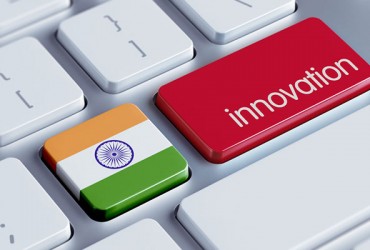When any society learns to live with solvable problems by reinforcing inertia, indifference and also internalizing helplessness, then imagination gets stifled first. Once imagination gets constrained, innovations are unlikely to follow. UNICEF and SRISTI have joined hands to announce a global challenge award for a variety of challenges described here: any one who thinks he/she can address these challenges through viable innovations is welcome to respond from anywhere in the world. SRISTI would facilitate connections between policymakers at different levels and the solution providers, so that no good idea remains untested. Wherever feasible, we will trigger action research to test the idea so that it gets sharpened and becomes more effective during implementation process.
Challenge one: Overcoming anemia among women, 60 per cent of whom and girls suffer from this problem in many parts of India and the world. Iron fish was an idea tried so that this cast iron fish would last a family of five for five years to provide sufficient iron by putting it in curry while cooking. But there could be several inhibitory factors which may prevent absorption of mineral iron. Feeding sprouted pulses and grains was another idea tried by a teacher in governments school. Children brought every day a handful of grains and teachers sprouted them fed them and the conditions improved within six months. Think of extremely affordable solutions which can help women and children particularly girl child worldwide.
Challenge two: many girls drop out/have absenteeism due to onset of menstruation, lack of education about sanitary pads and access to clean toilets. Unnecessary embarrassment about a biological fact is completely avoidable because educational system has not educated boys, and others in society properly. Recently a women member of parliament in a European country breast fed her child while participating in the debate. She did not care. Nobody should really care as long as she si comfortable doing what she thinks in the best interest of larger social responsibility and emotional care of her child. Think of innovative technological, social, institutional innovations which will make it possible for girls and women to deal with their biology with self-respect, confidence and completely without any inhibition.
Challenge third: a lot of young people drop out of education soon after tenth class or some after 12th class. Only a small number of young people are able to pursue higher education. We need to create online courses or MOOCs for building their educational, social, and technological skills to not just solve problems, earn livelihood but also be more create creative and collaborative. What do you think will be most important concerns that youth worldwide will have common interest in so as to design online courses for them? What pedagogy will engage them most intensively. SRISTI organized summer school on inclusive innovations for three weeks recently. College students of 15-19 year age besides some even younger learned to define an unmet social need, make mind map, analyze problems fabricate solution, test these , redesign them and get user feedback in most cases except when field testing was not possible at this time of the year. What kind of innovations one can try in products, processes, systems and services (PPSS) so as to make a lasting difference to continuing education/empowerment of such youth. What are the most creative ways of engaging them in productive mapping o unmet social needs, and convert these into social or economic entrepreneurial opportunities should some of them wish to do so?
Moe challenges next week. I look forward to hear from you soonest and hope that you will spread the word around and help us reach those creative individuals, communities, networks and social movements which are impatient with these problems, agile enough to change their models in different social and cultural contexts, learn from people and agree to be led. Write back, if you are an impatient change maker.

